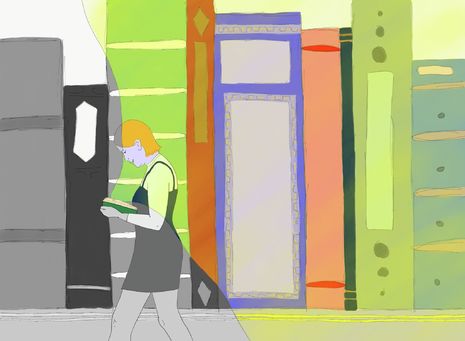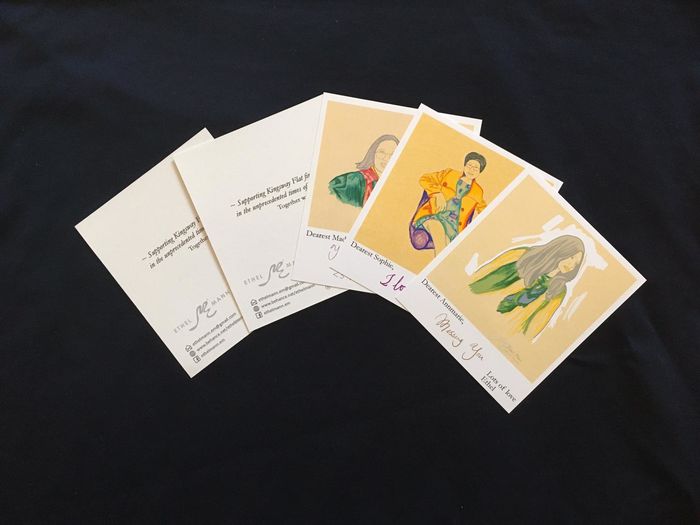Poetry in a time of pandemic
Esmee Wright argues against the devaluation of poetry in a world desperate for expression

So poetry is no longer obligatory in the English GCSE. It’s only because of the pandemic, they say. I’m sure my 12 year old self would have been quite glad. Like the rest of the world, I didn’t like poetry. I told myself it was because it was silly. Too often, the things we were introduced to were. People may dismiss it, but children’s poetry is a difficult thing to do well, and an easy thing to get abysmally wrong. But beyond the tragic acrostic, there was another, more concrete reason I disliked poetry: I was scared of it.
Poetry, ‘proper’ poetry, was a higher art to me. Even more than paintings, than statues and sculptures, it required a knowledge both analytical and historical, that I simply did not possess. I could look at a painting and appreciate the picture. I could never possibly hope to understand all these old dead men and their flowery words. How could I read the words of Blake and Byron? I couldn’t even pronounce ‘anaphora’. And yet it didn’t stay that way. Shockingly, as I studied more and more poems, I got better at understanding poetry. I still can’t reliably remember the meaning of anaphora, but when I read poetry, I don’t feel like I am staring at a code I’m not smart enough to solve.
“To deprive students of poetry is to deny them the right to the world and a hundred ways of understanding it.”
The pandemic and encroaching zoomification of our education is no reason to abandon poetry. The students who are no longer required to grapple with poetry will still have to fight through Shakespeare, whose words are quite explicitly not to be read on a page but recited in loud, public performance. In comparison, poetry is oddly apt for lockdown life. I don’t want to be too poetic and declare that the mind is freer when the body is confined or whatever dubious claims have been made about art in lockdown, but poetry is an art that can be created within the confines of your own home – perhaps even more so than in the classroom. Poetry is not chemistry, nor PE. Poetry can be performed within your own four walls – even over zoom, should your teacher wish it. It doesn’t need multiple actors, nor an audience even . Poetry is an art for being locked up. Not even a pen and paper is necessary, if you are dedicated enough.
Poetry humanises
It would be false to say that poets never fall foul of wrapping themselves up in wordplay to the point of forgetting the real world. But poetry, done well, expresses things that we cannot express in any other way. Joseph Brodsky (1940-1996) wrote under the eye of the Soviet government. The USSR may no longer have been directly under the terror of Stalin, but it was hardly a utopia. In 1970, he wrote Don’t Leave Your Room - an apt demand these days. He wrote with the voice of fear, exhorting his countrymen not to go out, to refuse even the company of their lover and drown out their thoughts with the bossa nova. And yet he was crying against this social, and mental, isolation – he saw it as the cause of stagnation in a country desperate for a breath of air from Soviet suppression. “Incognito Ergo Sum” is the cry of the scared; only when they are hiding from reality can they be real themselves. But are you being the real you when your only audience is four walls and a table? Brodsky was eventually “strongly suggested” to leave the USSR, precisely for the political, and powerful, nature of his poetry.
Unlike Brodsky, we are not living under a repressive government. We are however, living under a pandemic of historic proportions. At the start of lockdown a children’s poet I follow on twitter started writing “plague poems”. He wrote them in a day, or a morning, or they came to him in a dream. They all speak more to my memory of the beginning of lockdown than any news programme or journalist investigation could. Statistics are good. They give concrete evidence of how badly this has all gone. But they don’t speak to the fear, the confusion, the feeling of sitting in front of a Zoom lecture and having your half hourly realisation that life as you know it has ended and you are in the wrong country and nothing is ever going to be normal again - and all the while you are trying to take notes on the use of the imperfective verses the perfective in Russian, because somehow that still matters.
Poetry might not be ‘useful’, it might not add to the economy or get your children jobs in a way you understand. But when we are all in our graves, those lines will be better remembered than any of our names. Poetry humanises. To deprive students of poetry is to deny them the right to the world and a hundred ways of understanding it.
 News / CUP announces funding scheme for under-represented academics19 December 2025
News / CUP announces funding scheme for under-represented academics19 December 2025 News / SU reluctantly registers controversial women’s soc18 December 2025
News / SU reluctantly registers controversial women’s soc18 December 2025 News / Cambridge welcomes UK rejoining the Erasmus scheme20 December 2025
News / Cambridge welcomes UK rejoining the Erasmus scheme20 December 2025 Features / Should I stay or should I go? Cambridge students and alumni reflect on how their memories stay with them15 December 2025
Features / Should I stay or should I go? Cambridge students and alumni reflect on how their memories stay with them15 December 2025 Film & TV / Timothée Chalamet and the era-fication of film marketing21 December 2025
Film & TV / Timothée Chalamet and the era-fication of film marketing21 December 2025










